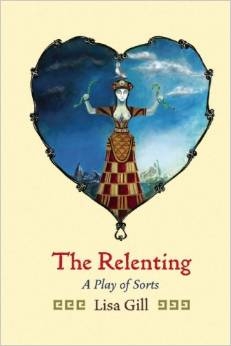Deconstruction of identity is a recurring motif in African-American literature. The exploration of the physical, emotional and spiritual devastation wrought by slavery continues to haunt its characters be it in literature, poetry or music. The most dangerous of slavery’s effects is its negative impact on the individual’s sense of self. Alienation underpins much of Black American writing. Slaves were told they were subhuman and were traded as commodities, whose worth could be expressed only in dollars. Consequently the much criticized “one theme” of African-American writing (slavery) cannot be escaped. In Toni Morrison’s Beloved, for example, Paul D – a typical exponent – describes his heart as a “tin tobacco box.” After his traumatizing experiences at Sweet Home and, especially, at the prison camp in Alfred, Georgia, he locks away his feelings and memories in this “box,” which has, by the time Paul D arrives at 124, “rusted” over completely. By alienating himself from his emotions, Paul D hopes to preserve himself from further psychological damage. In order to secure this protection, however, Paul D sacrifices much of his humanity by foregoing feeling and gives up much of his selfhood by repressing his memories. Although Paul D is convinced that nothing can pry the lid of his box open, his strange, dreamlike sexual encounter with Beloved – perhaps a symbol of an encounter with his past – causes the box to burst and his heart once again to glow red. Continue reading “Shahid Reads His Own Palm”

 Not every writer could make a face-down with a rattlesnake in her Moriarty living room “a primal encounter waiting to be interpreted,” yet that’s precisely what Albuquerque poet Lisa Gill has done. Her introduction to the play, “The Catalyst & the Evolution,” contains one of the best descriptions of the writing process I’ve read: “Ecdysis is the word for the skin sloughing snakes do and might as well be the word for the process writers go through with revisions of certain manuscripts, those texts whose life cycles demand we shed draft after draft, abandoning each accrued preconception to ultimately access deeper instinct.”
Not every writer could make a face-down with a rattlesnake in her Moriarty living room “a primal encounter waiting to be interpreted,” yet that’s precisely what Albuquerque poet Lisa Gill has done. Her introduction to the play, “The Catalyst & the Evolution,” contains one of the best descriptions of the writing process I’ve read: “Ecdysis is the word for the skin sloughing snakes do and might as well be the word for the process writers go through with revisions of certain manuscripts, those texts whose life cycles demand we shed draft after draft, abandoning each accrued preconception to ultimately access deeper instinct.”